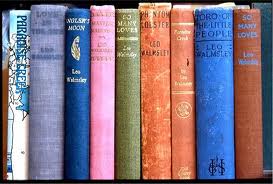Fiction
Read it
I wandered past this book in Just Books, unable to stop myself from trying out such an interestingly titled book. I'm glad I did. I've had extensive exposure to Indian authors - much to my delight - but not many (if any at all) Pakistani ones. It was definitely a textured difference to explore.
The novel centers around a Muslim Pakistani family that has settled into life in a "South Asianized" section of an English town. The two main characters are a middle aged man and wife. They have 3 children who are grown and visit far too occasionally.
The main character's brother has moved in with a divorced Pakistani woman, much to the community's dismay. The two are murdered and the book dances around who has done it until the very end. Indeed it's almost like a mystery where the strings come together at the end, but not really. In fact, while the whole novel dances around the murder, the novel itself really has very less to do with the murder (or finding the culprit) rather than focusing in excruciating depth about the cultural factors and attitudes that lead to the events themselves. The small attitudes, justifications, and rationalizations prevalent in that community that persist even though the community itself is far from the land that spawned such thoughts in the first place.
I found it very curious that the author chose to portray the wife as the move vehement believer than the husband. Indeed, he strikes one as a milquetoast character who just wants to get through his life comfortably and his morality is flexible as to what suits him. The wife is not concerned with anything but what is proper. The children, as can be expected, have vastly different outlooks and standards than their parents.
Another interesting thing I noticed in this novel is the persistent mentions of plants, flowers, and insects. It made me wonder if it was a leftover from Urdu poetry references.
The plot line definitely wanders and there aren't any huge surprises in this novel. Weirdly, I didn't find myself minding too much. While I try to be open to different cultures and ideas, I have to admit that this book made it difficult for me to remain indifferent to some of the cultural aspects of both Islam and Pakistan that I object to. But I did appreciate the honest look - and it was quite honest I feel. I could identify with the displaced population, desperately clinging to tradition and identity, and always feeling outside and persecuted. Overall, it has whetted my appetite to explore further into Pakistani literature.
It's not an easy read, especially if you truly think about the attitudes behind the scenes and accept that this is their tradition. But it IS different than the standard Indian fare. It will seem shocking for those who don't understand the cultural underpinnings that have created these attitudes, but life is good when you learn about others.
Read it!
~Becky~
